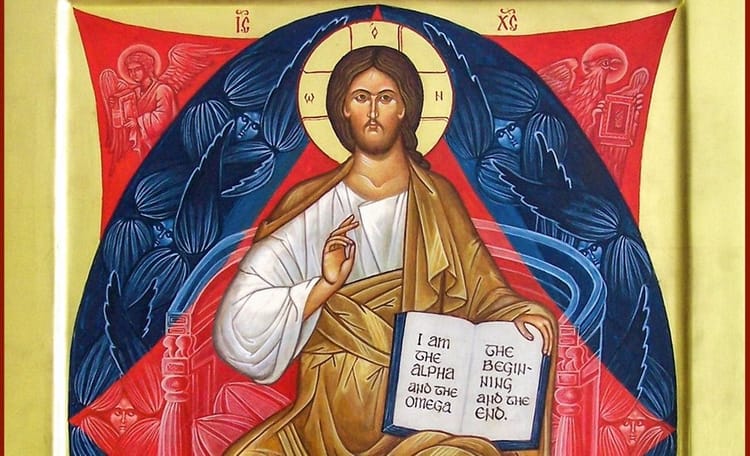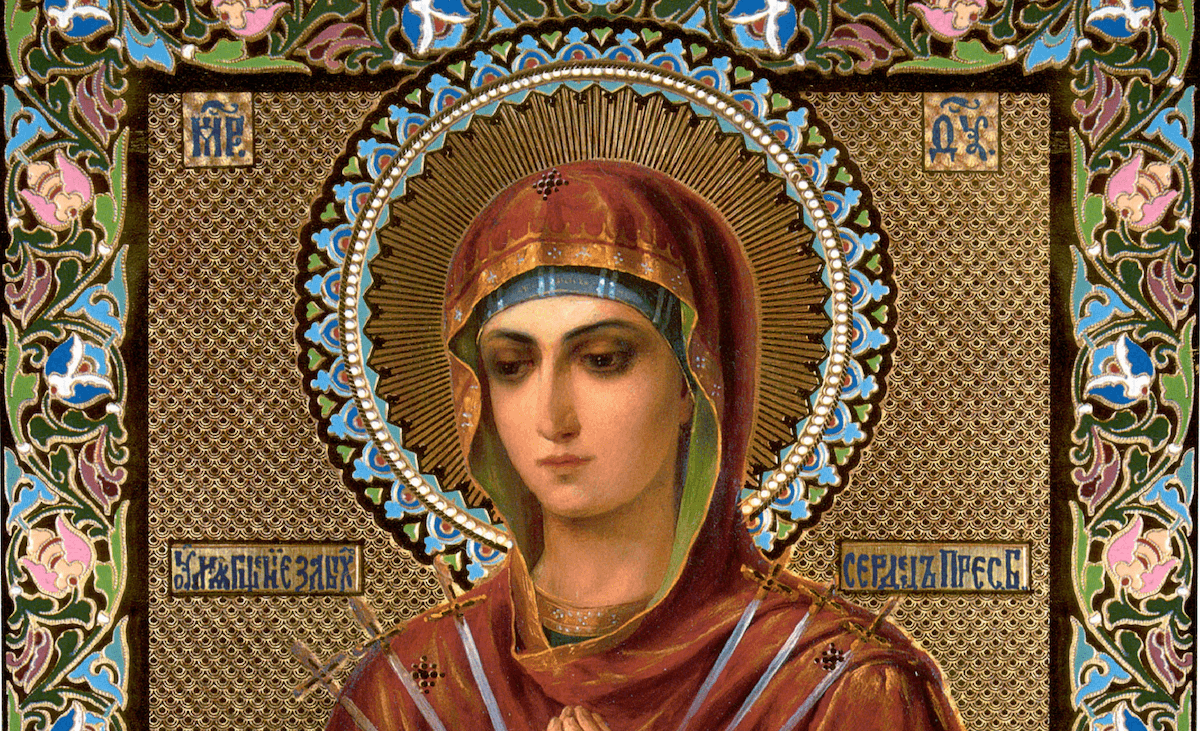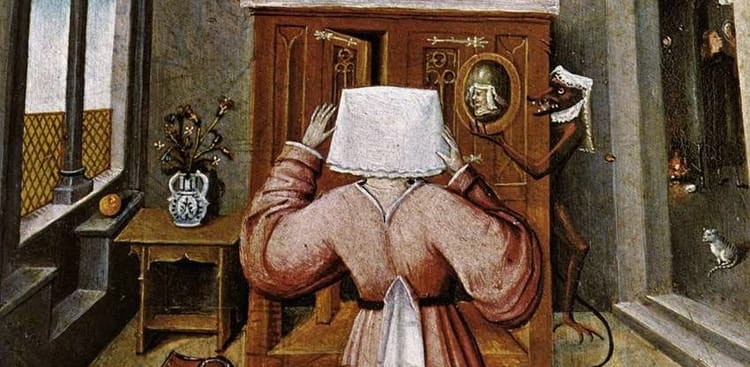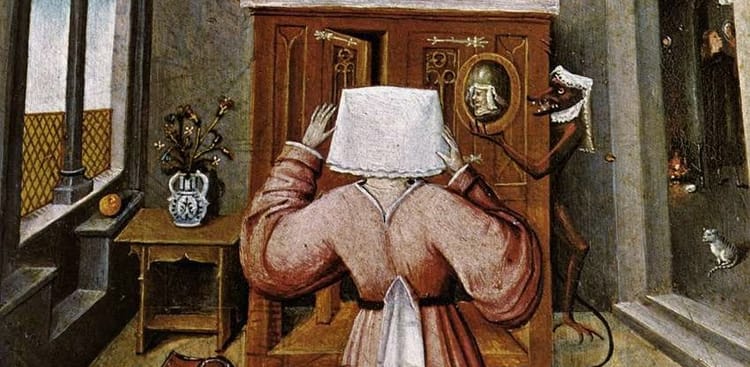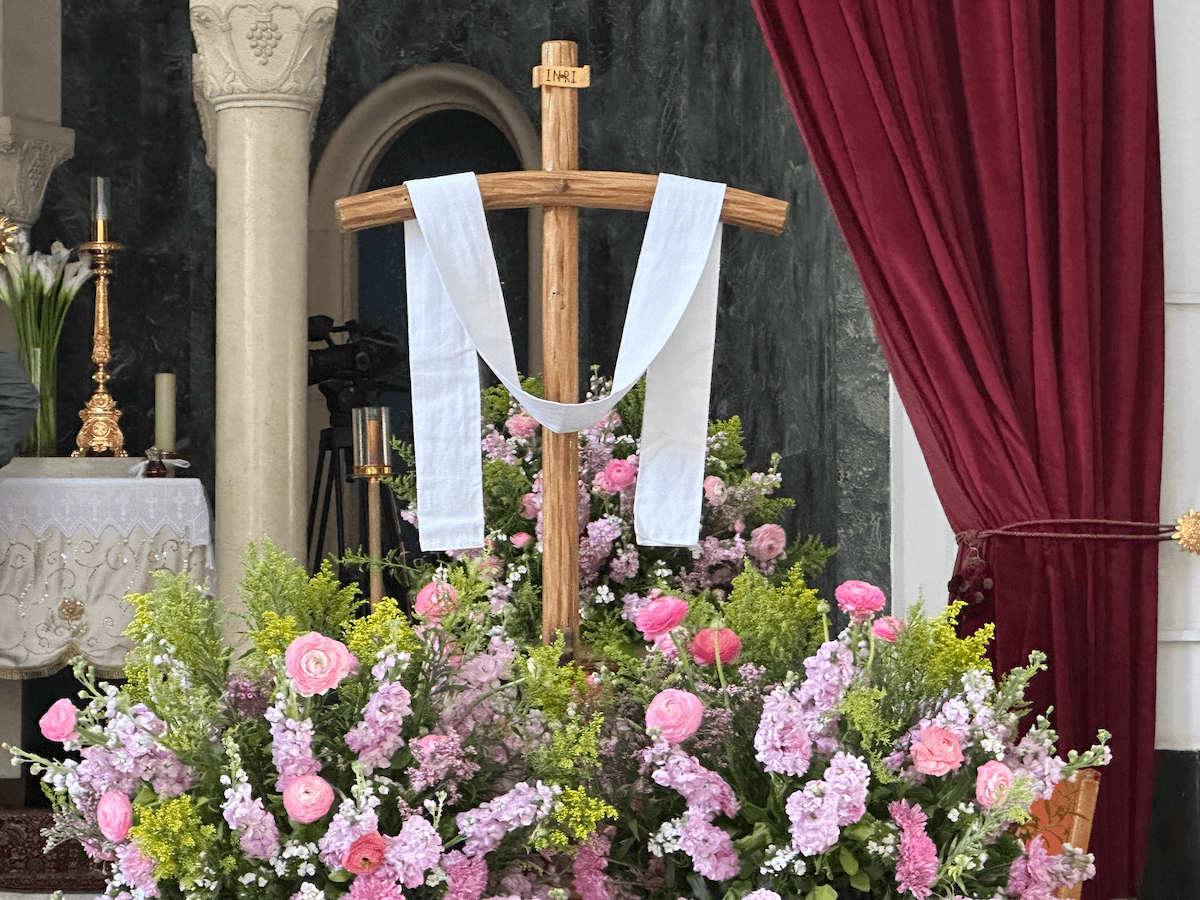The Joy of Repentance. Part 1
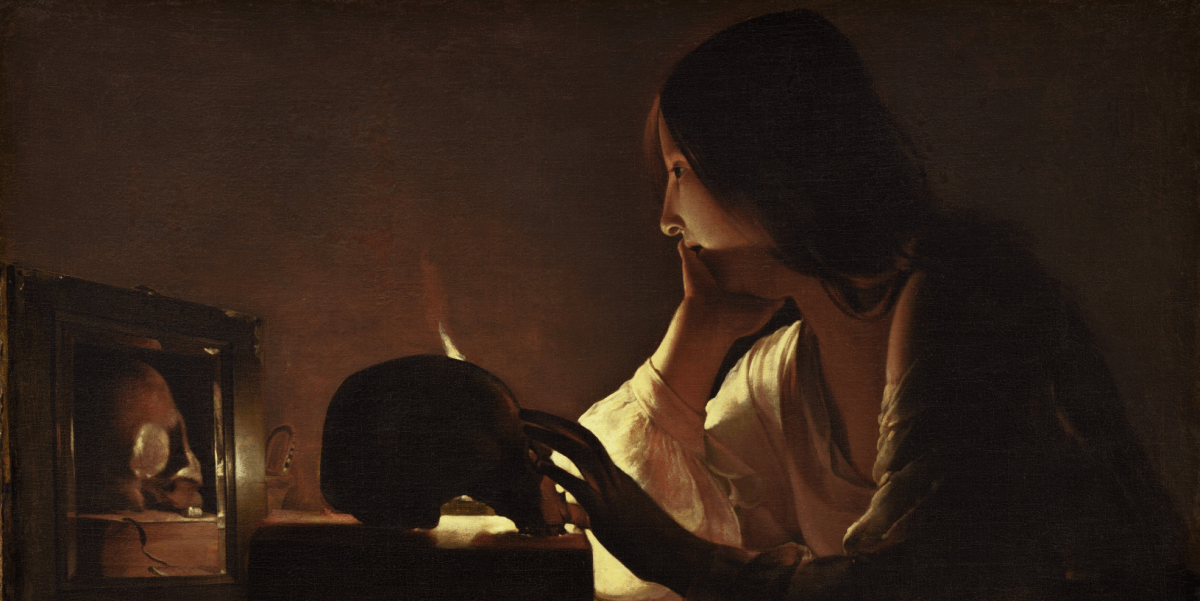
As we are preparing to receive the Holy Communion[1], we must closely examine our lives and ourselves. Our lives as God intended them to be, and ourselves as we have chosen for them to be.
That is what repentance means: to measure the distance between God's will for us and what we have actually done; between what we were given and what we have — or have not — made use of; what we have or have not accomplished. We must do this, and not just once, but continually. We always leave this task for the hour of our death, for the last time we fall ill, for that moment we realise we are in grave danger. And then, with Death looking us in the face, we suddenly get serious about ourselves, our lives, about other people and God. We stop playing pretend. We stop living as if we are only writing a draft that we might finalise one day sometime later — oh, so much later, for we always assume we have plenty of time. But that day never comes. We get old, our minds grow rusty and our bodies frail; sudden death can find us unexpectedly, and we are suddenly all out of time. It is very scary to think a moment may come when it will be too late.
In his Brothers Karamazov, Dostoevsky dedicated a small chapter to Hell. To him, Hell is the moment one says: 'It is too late! I missed out on everything... I can no longer do the only thing that truly mattered, the only thing I should have lived for. No one needs me anymore. There was a time when I could love fully, with all my heart and soul, and now I am unable to. Many needed my love back when I was on Earth. Many needed me to notice them, pay attention to them, give them a heartfelt look and see them for what they were. Many needed me to listen to them and hear not just the empty sounds and words but what lay beneath, be it sorrow or joy.'
The prospect Dostoevsky presented — and I have just described — is very real. There will come a moment when everything will have passed. No one will need our love, our thoughts, and our words any longer, for we will all be facing God's love, God's wisdom, God's truth, and God's judgement.
This is why, each year, we gather for a brief one-day contemplation of the Eucharist and preparation for Communion. All is telling us: 'Wake up! Wake up now, while it is still not too late. Start living while you still can, while you still have time!'. Our Saviour is telling us: 'Walk while you have the light' (John 12:35); once it gets dark, it will be too late to walk. We still have time, yet we do not know how much. Right now, we are here, full of life. Yet in a mere second, any one of us could be struck by a sudden death and have to stand before God. In this sense, death reminds us that we should hasten to live as deeply as possible.
At different stages of our lives and in different circumstances we should also live differently. A French poet once said: 'In the eyes of the young men there is fire, but in the eyes of the old, illumination'. We should burn while we are called to burn; but once the time for burning has passed, we should turn into light. At some points in our lives, we should be a powerful force; at other, a blissful silence. Each one of us should think about where we are, and whether we are capable of transforming from a vibrant, bustling force into a contemplative light. Sometimes, people need our light more than our actions. They need light, silence, and stillness. They need that deep, quiet understanding, the kind you can only give someone else once you have reached inner stillness yourself; and not out of idleness, but out of cultivating inner silence.
The Church Fathers taught that we should always remember death. Yet we should not remember it so as to fear it; we should remember it so that we live our lives fully and deeply whilst we are still in this world. Death alone can show us what our lives are supposed to be. Only those willing to give their lives for God, for truth, and for their neighbour, can truly live with their entire soul. Those unwilling to risk life for truth will never live fully. They will always remain prisoners to fear, worrying about preserving their lives at all costs and not risking too much. That is why it is so important to not merely accept our mortality but to form a new kind of relationship with it.
St. Paul said that for him, 'to live is Christ, and to die is gain' (Philippians 1:21). Yet he also said that he knew not only the resurrected Christ, the One who defeated death, but also the Christ crucified. Here on Earth, we should join Him not only in the triumph of life He gave us by rising from the dead but also His way of the Cross. And this means being ready to sacrifice your life, to accept death in the name of what is holy, great and glorious.
We rarely give this much thought. Life marches on, and when we are young, death feels remote and unreal, as if it only affects others. It is the other people who are dying, mostly of old age. In times of war, the young die as well, but this death is not gradual. It does not grow in a person and destroy them slowly, day by day; that death is swift, tragic and unrelenting. And so much grief and sorrow comes with it, so much fear for those you are leaving behind...
Yet all of us are steadily walking towards death. Sooner or later, it will come for each one of us. And so we are called to live in such a way that we are ennobled by His greatness; so that death does not terrify us but can instead be a pathway to the glory of life eternal in Him. To speak of death, then, is the same as to speak of life. To speak of death means to speak of the fact that life must be as intensive as possible in every single way: in creation or in silence, in solitude or in openness. And so all of us are facing this question: over the course of my life, however short or long, have I become a person? Have I become a Christian? I call myself a person, I call myself a Christian; but is this true?..
One of the early Church Fathers, St. Irenaeus, said that every person is called to be a manifestation of God's glory. At their best, a person should radiate for others the gleaming glory of God's life eternal; they should be a living revelation of God. One of the Desert Fathers also said, 'Whoever has seen his brother has seen his God'. Is this true? Could it be said about any one of us that those who see us linger for a bit and think: 'Who is this? What is it about this person that I have never seen before? They are boundlessly humble and at the same time so fiercely loyal'. We are called to comport ourselves in such a way that others may see a reflection of God's glory in us; so that they would see the image of God in every gift we share with others from the depths of our souls. This image might not be perfect, but it should already shine with the unending glory of eternity and God Himself.
Only then can we say that we have become the person God created us to be. Not just a human being in the biological sense, but a person, the way God created us: His image. A living icon that can tell others something about God; that points others from Earth toward Heaven, from the temporal towards the eternal, from the self towards God, for Whom alone their soul is ever seeking and yearning. We call ourselves Christians: 'I'm a Christian'. Early Christian martyrs spoke those words. Those were the words they spoke to witness that Christ was more precious to them than their own lives, and for these words they faced ridicule, torture and death. These words decided their fates. The first people to be called Christians were the Saviour's disciples in Antioch; not just because they were part of a new small yet prominent sect, but because people recognised them as disciples of Christ. During the first two centuries, various Christian writers addressed the pagans trying to help them understand what it meant to be a Christian. Tertullian, for example, said that the people who saw Christian families or small Christian communities would often say: 'But just how much do they love each other!'. A lively, humble, attentive love, from one person to another, from one family to another, from one community to another was what set Christian communities apart at that time.
Today, we often lack this love, even within a single family or small community. Even if there is some kind of love to be found, it is the usual, regular love, of the kind you could see among the unbelievers also: the natural love. Not the love that is born of the miraculous renewal the Holy Ghost performs on our souls. It is tragic that no one can tell we are Christians unless we loudly proclaim so ourselves. And then people will often get confused and ask: how can this be that this is a Christian?.. Why be a Christian if you end up being no different than anyone else? You still fear suffering, illness, danger and death. You are still greedy for what you could take or gain from life (that is, another person), be it spiritually, bodily or materially. There is still no love in you; that is, you are not making a conscious choice to forever reject coldness, indifference, forgetfulness or pure vitriolic hatred.
Each one of us is facing this question. I can scarcely call myself a person in the fullest sense of the word. I'm but dust, I belong to the animal kingdom, not the kingdom of God. Sparks of that other kingdom sometimes pass through me, like a shooting star through the night. It is only for a brief moment that another may glimpse something in me they have never seen before. I cannot call myself a Christian either, for my love falls short of God's love, the love He commanded: 'He who has my commandments and keeps them, he it is who loves me'. Yet we prefer to ignore His commandments.
'Greater love has no man than this, that a man lay down his life for his friends' (John 15:13). St. Paul said that few are ready to die for a friend, yet Christ died for us when we were still His enemies. He died not only for those who recognised Him and became His disciples, whether worthy or not, but also for those sentenced Him unjustly and crucified Him: 'Father, forgive them; for they know not what they do' (Luke 23:34). So we must ask ourselves: am I a Christian? Could anyone recognise Christ's image in me? Could they feel Christ's love in my heart and see God's wisdom and truth in my words and thoughts? Could they recognise God's way in my actions, in the way I approach life, other people and God himself?
St. Paul says that death will come, and judgement will follow. Yes! Death will inevitably come to each and every one of us, and then we will have to face God's Judgement—although we cannot know when. Christ warned that the Judgement would show no mercy to those who never showed it; to those who were ruthless and heartless. That will not be because God is as ruthless and heartless as we are, but because salvation means joining the flow of God's love, joining His love with ours. And if there is no love in us, if we are incapable of love or are closed off to it, if we do not at least have a heart yearning for love, we cannot join His love. We will realise, as Dostoevsky said, that the only meaning our lives had was to love. And we have therefore made our lives entirely meaningless and barren, and are now incapable of comprehending the meaning and substance God could now give us. God's judgement is not about Him weighing our virtues or evaluating how well-versed we are in niche theological points.
Consider the Lenten reading about the sheep and the goats. Every question asked there comes to this: when you were on Earth, did you have a warm heart or a heart of stone? Did you feed the hungry? Clothe the naked? Visit the prisoner? Did you show compassion, or were you like the rich man feasting while Lazarus starved at his doorstep?.. That is the only question we will face: did we have a human heart or a stone in place of one? If you had human love, it could bloom to resemble God's love; but if you did not even have human love, what could God's love be joined with?
There is no use trying to escape this judgement by claiming you love people. All of us love all people—as long as they are far away from us. One writer described one of his characters this way: this man so loved mankind that he hated each individual person, who in his eyes was a disgrace to the perfect image of humanity he had in his mind. He loved the abstract notion of humanity that never existed, but he could not tolerate a real person or a real crowd. Real persons were ugly to him, for he dreamt of a perfect splendour that never was and would never be until the Second Coming. Yet is not our love for people exactly like this? We love very few, and even them we do not truly love fully and unconditionally. We quarrel with them, our hearts grow cold and we turn away from them.
St. Paul the Apostle says: 'Bear one another’s burdens, and so fulfil the law of Christ' (Galatians 6:2). But there is more to burdens than just the hardships someone faces; they include the entire weight and pressure of another's personality. We may all be willing to bear the burden of someone else’s trouble, a short illness, or a brief argument. Yet how scary it is to see that there is no end to someone's woe, no end to their illness and no end to their need. We will surround them with our care and attention for a time, but then we will slowly start growing cold. Could it be that there will never be an end to their illness, need or woe? It is time for them to recover, get up and pull themselves together! Could it really be that I might have to spend the rest of my life caring for them?
That is not how God treats us. As long as we are alive, be it decades, He is waiting for us patiently. He keeps hoping for us and trying to help us.
The problem is not that there are few people we love; it is that there are many we cannot love. Our hearts are too small, too narrow. As St. Paul said, 'You are restricted in your own affections' (2 Corinthians 6:12). Yet how thoughtless and impatient we are in loving those we claim to hold dearest! We should look at those who surround us and ask ourselves: what kind of love do we offer them? Does it bring them joy, or does it burden them? At times, our love may even be suffocating. If we believe we know what will make someone else happy better than they do, and if we try to take away their freedom and control their life 'for their own good', then our life will not liberate them; it will instead become a yoke.
Footnotes
1. The original Russian uses the word govenie (εὐλάβεια; pietas), which means extensive preparation for taking Communion. Traditionally, it can involve daily Liturgy attendance, prayer, fasting and abstinence for several days to a week.
